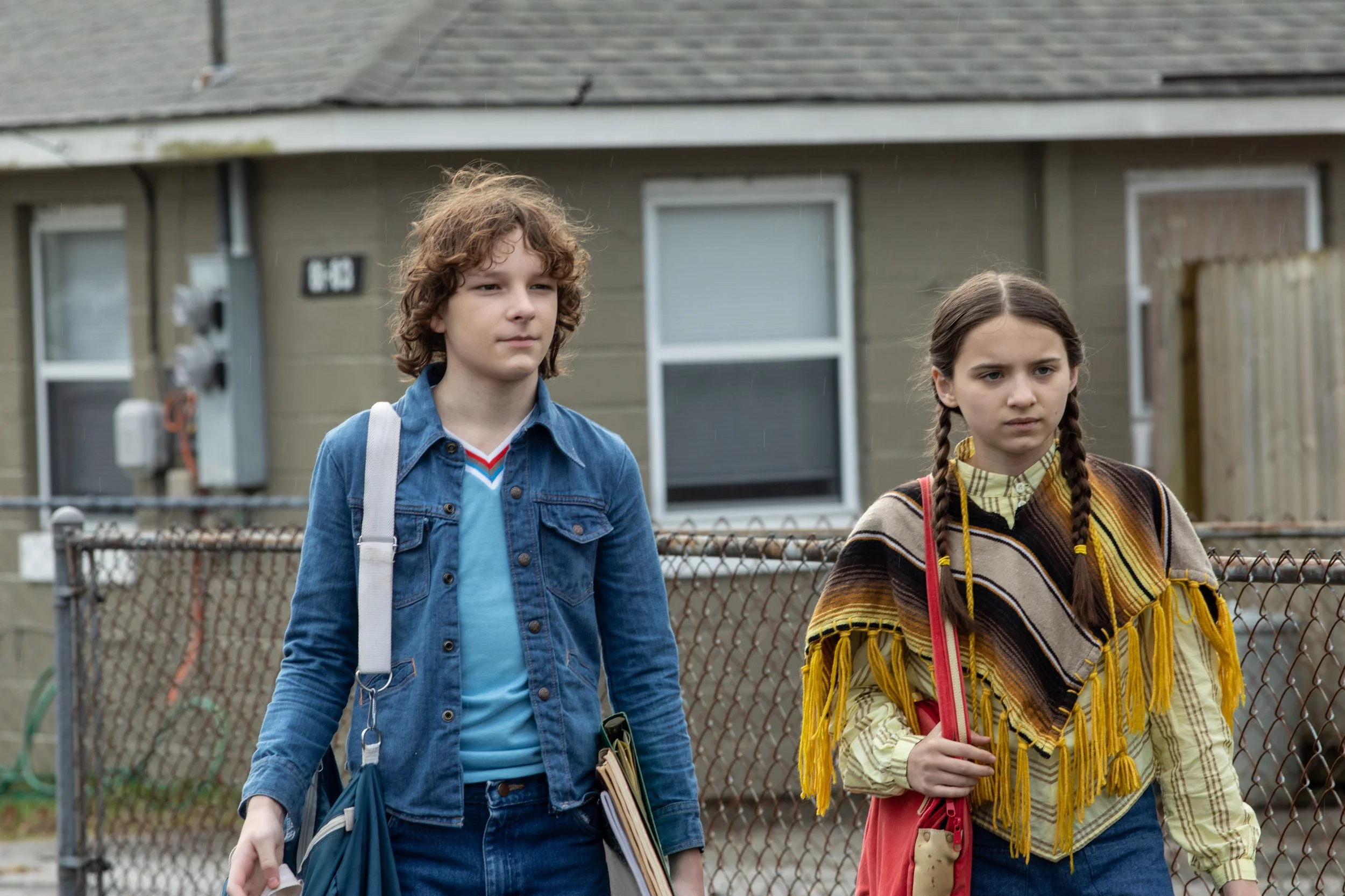The Black Phone (2022) Film Review and Summary
LIGHT 3/10
Often when a character wears a mask, it’s to hide some version of themself that they’d like to keep away from society. In The Black Phone (2022), The Grabber (Ethan Hawke) may truly just wear it as a spooky aesthetic.
The Grabber kidnaps children in broad daylight under the guise of a part-time magician. He drives around in a stereotypically creepy van, waiting for children to snatch up into his vehicle full of black balloons. He is introduced with a crackling inflection that is reminiscent of past renditions of the Joker, or even Paul Dano’s Riddler, but seems to be much more grounded than them. He is a serial-killing kidnapper who likes to play games. Not games of pure sadism, like in the Saw franchise, and none to seemingly retaliate against those who have caused him to isolate himself either. The film presents him as almost a surreal figure, one that is not bound by logic or purpose aside from the pleasure he gets in punishing “naughty boys”, but again, he doesn’t torture them unless he deems them worthy. I know I am rambling on about this individual character before even diving into the plot, but his development throughout the film left me utterly bewildered by how little was done to progress him forwards.
Finney (Mason Thames) is The Grabber’s newest victim. After witnessing numerous of his friends and peers getting scooped up by the culprit, Finney finds himself in the same situation. After defending himself the best he could, Finney wakes up in the grimey, rusty and bloody basement that becomes his new prison for the duration of the runtime. In this confinement, there is a window, an entrance, a bathroom, and a black phone (haha name of the movie). As Finney wallows in despair because of his seemingly inevitable fate, he starts to receive calls from the same phone that The Grabber claims is defunct. Just like our favorite heroes such as Kung-Fu Panda’s (2008) Po and Spiderman, Finney learns from others’ past experiences in order to fulfill his potential as a confident young man. The allusion to these two films is no mistake, as the interactions between these spiritual entities of fallen children and Finney are as contrived as any hero-film formula. We see Finney practicing fighting moves, digging holes to escape, and even escaping once to be swiftly returned to his hellhole after a half-hearted attempt of juking a 50-year-old man.
Meanwhile, all of this is interwoven with scenes that display Finney’s sister, Gwen (Madeleine McGraw), experiencing dreams that come to reality. This paranormal ability seems to be hereditary, as their father (Jeremy Davies) makes her swear that she won’t become like her mother. It is apparent that Gwen is the core of the single-parent household that the three of them make up, as she will convincingly curse out and fight anybody who disrespects her brother.
After all of this, and a concluding sequence that I won’t spoil, I found myself thinking to myself in the theater that none of what I watched truly mattered. This 100-minute film cherry-picks when it wants to use spiritualistic moments of intimacy and discovery out of convenience for its protagonists, and it doesn’t even execute it well. The aforementioned phone calls that Finney partakes in are drowned out in scratchy effects that sound as if it were recorded through the distortion of a megaphone, which becomes tiresome. This would be enough to border the line of a gimmick, but then the film chooses to include surreal moments that blur the lines of reality and fiction, creating another layer of nuance that is never fully expanded upon. Even more than that, the relationship between The Grabber and Finney is minimal. Finney’s journey towards self-acceptance becomes the plot, instead of the dichotomy of a childlike villain that seems to have a maturity level that barely rivals his victims. Ethan Hawke also provides the most general psychopathic performance possible, alongside the child actors who are handed some of the cheesiest one-liners and exposition imaginable.
The Black Phone contains many aspects of past horror classics that made them so impressionable, particularly with the usage of children as a vehicle for self-discovery a la Stephen King. Instead, what begins as a daunting horror film devolves into a half-baked coming-of-age story with dark undertones and no overtones.


